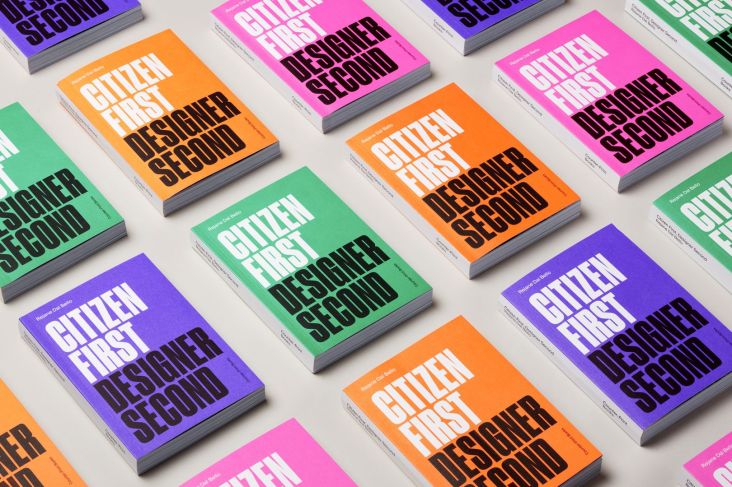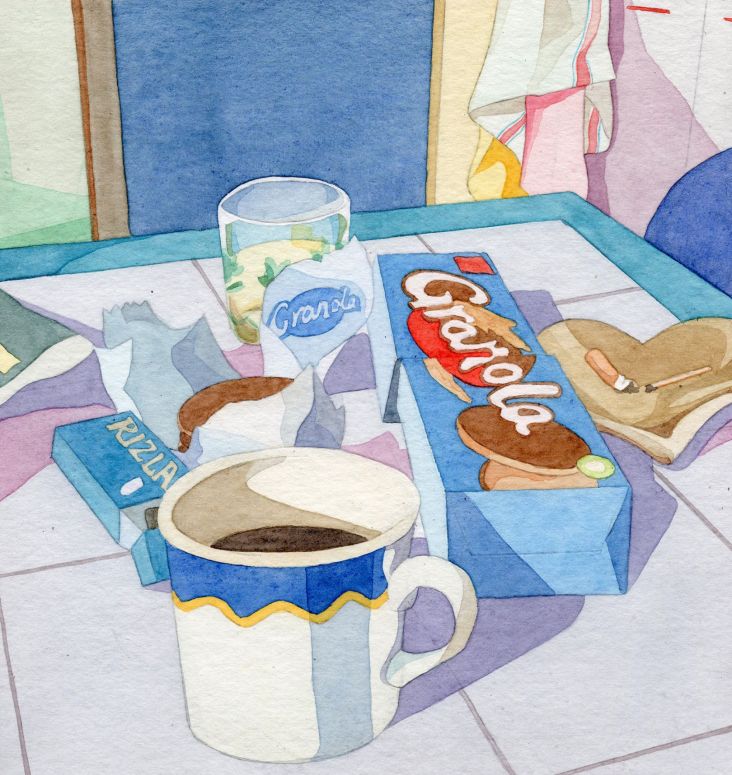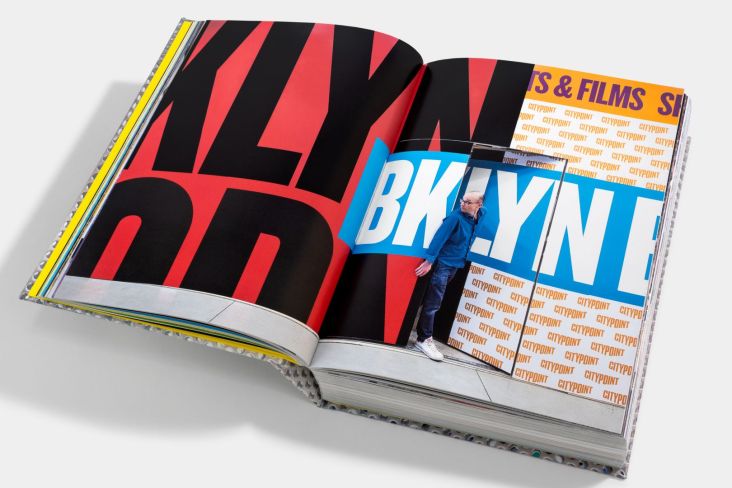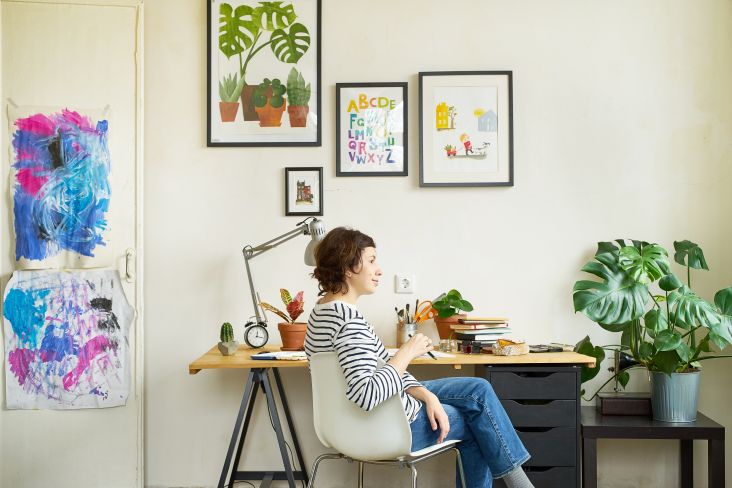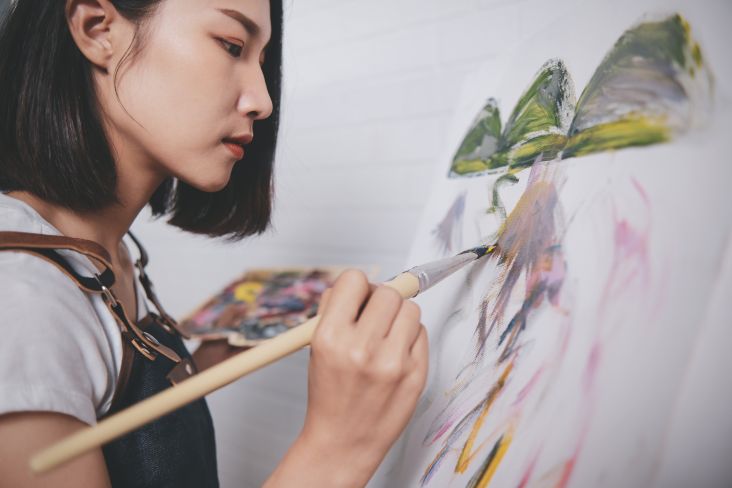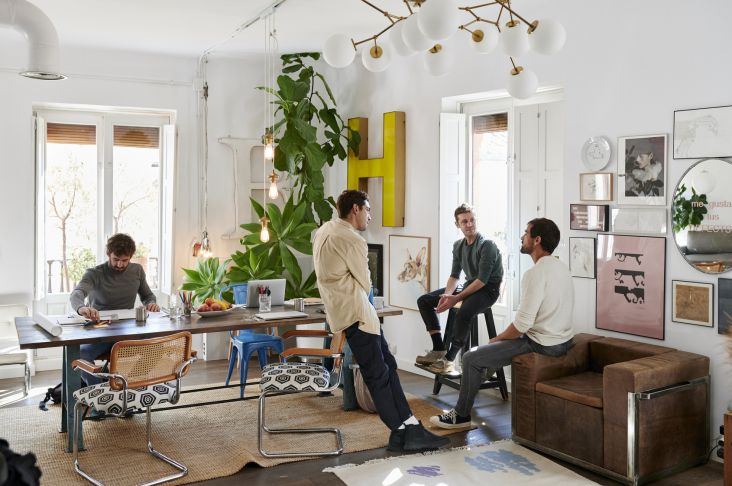Insight from creatives on lessons learned in 2021 and what they'll be doing differently next year
March 2020 turned all of our lives upside-down. But it was also a chance to slow down, stop and think more clearly about what we really wanted from our lives, including our careers.
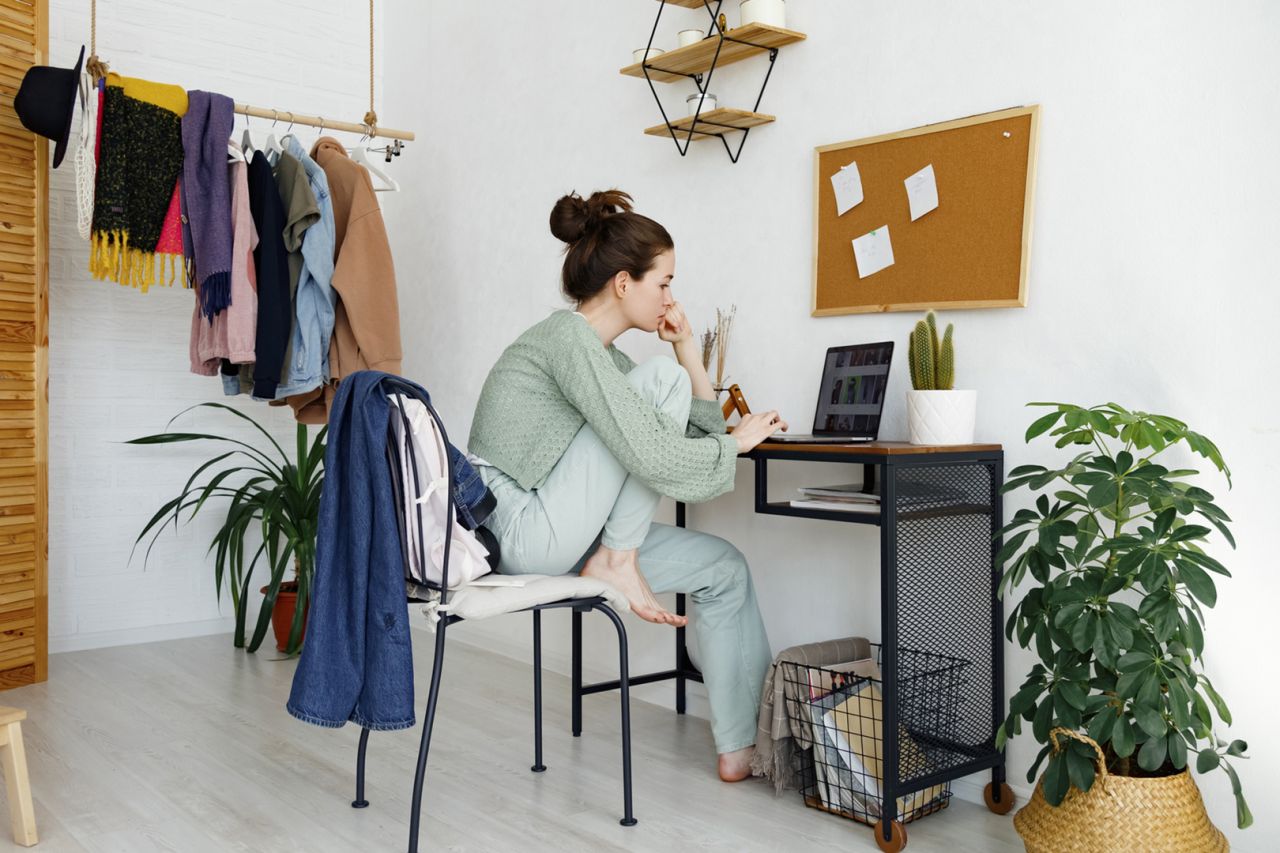
Image licensed via Adobe Stock
The period since has allowed us to reflect and find ourselves again. And so, even though 2021, with all its uncertainty and gloom, has been quite exhausting, many of us have still found the time to improve ourselves, boost our skills, and embrace our creative passions.
Along the way, we've learned a lot of lessons and are getting ready to do things differently. In short, we're ready to come back bigger, better and stronger next year, whatever the world throws at us. In this article, we share some of those lessons and hear what members of the Creative Boom community will be doing less or more of in 2022.
1. Approach past clients
Are you struggling to get enough work? Many creatives have realised in 2021 that persistence can pay off, especially when it comes to lapsed clients.
"I've found approaching past clients has led to new work," says illustrator Niki Groom. "I used to presume they'd come to me if they needed anything. But getting in touch with examples of my recent work, and saying I'm available, has led to brand new commissions. And that's been backed up with a promotional printed physical mailer which works as an intro to my work, thanks to a local grant I received. That's something I'll do again in future, for sure."
It's a great tip and one that's often overlooked. Clients are often super busy, and while they might have something they need to tackle, they don't always get round to asking for it. So it's good to reach out and say, 'Hey! I'm here if you need me!', as photographer Charlie Budd has also found. "Every few months, I review past clients and get in touch for a catch-up," he says. "I've had several thousand pounds worth of business this year by doing that, usually with some video thrown into the mix too.'"
Remember that clients have also had an especially difficult and busy year, so anything we can do to help them is likely to be appreciated. For example, says Mark Hutton of Hutton Creative Design, you should always chase unanswered quotes. "If you don't get a reply, a polite follow-up can often work," he says. "I followed up on a quote months after not hearing anything. It turns out they were just really busy. It then turned into a job not long after my response. Result!"
2. Be honest
One lesson the pandemic era has taught a lot of creatives is that honesty is the best policy. "I like to think I've started to unlock more of that this year in the way I present to clients," says senior creative Melissa Yates. "I've stopped acting like I know all the answers, taking away the 'Insta filter' of work and discussing the reality of creativity."
"Vulnerability is the ultimate confidence," agrees creative co-founder Darnell Brown. "If we want those we seek to attract to answer our questions, share their email addresses, and spend their money with us, it's imperative that we go first. Ugly truths and embarrassing stories can sell your work more than ads ever could." In 2022, he plans to "share more of my lowest moments and experiences I'm not proud of to set myself free and earn the trust I seek. It'll hurt like hell at first, but the residuals and growth will be worth it."
To be truly honest, both to yourself and others is basically about confidence, and that's something multidisciplinary designer Chris Wilson feels he's started to master in 2021. "I feel I'm slowly learning to be more confident about how I talk about my business," he says. "For too long, I would try to look bigger, using 'we' instead of 'me', but it felt disingenuous and realised the 'me' is what separates my business from other creatives and to embrace it."
He's also learned that 'niching down' isn't for everyone. "I enjoy offering a multitude of creative services: it keeps me passionate and developing as a creative," he says. "Sometimes it's best to do what's comfortable for me, follow my gut, regardless of industry advice and what others are doing."
3. Look after your health
We all work hard, but working so hard that it ruins your health doesn't do anyone any favours. That's something illustrator and storyteller Aelfleda has learned the hard way after developing RSI in her wrist. "It made working painful for over a year and took all joy out of it," she reveals. "So I've learned the importance of taking care of my body and resting. Doing so has allowed it to heal, and I'm now able to enjoy my creative work again."
And it's not just physical health you need to worry about, but mental health too. "The biggest lesson I've learned this year is that I need to look after my mental health as a priority," says illustrator, designer and photographer Tim Easley. "It's easy to forget to look after yourself, and that can affect your work in ways you can't even imagine.
"I found a new therapist this year, plus went to the doctor about depression and anxiety issues," he continues. "It's not a quick fix by any means, but knowing that you're prioritising your own mental health and wellbeing can help make you feel more like you have things under control and help you free up some of your brain so you can work more easily."
Good mental health is partly about finding the right balance in both life and work. And so in 2021, professional jeweller Lucille Whiting has focused on "learning what's enough time and effort when it comes to social media." As she explains: "Maintaining a social media presence and providing social proof doesn't mean being permanently glued to it, constantly engaging or sticking to a rigid schedule. It doesn't achieve as much as I thought it did. People prefer other, more personal ways to connect, like virtual meetings."
4. Get organised
We all tell ourselves we need to be 'more organised', but how do you actually go about it? Designer, speaker and podcaster Berenice Smith explains that in 2021, she's learned the importance of having a morning checklist. "I start with money, oneself, current clients, and past clients: Do they need help? All are necessary."
Meanwhile, illustrator and tutor Milan Topalović has focused on organising the way he gets inspiration. "I've stopped bookmarking interesting articles and instead actually reading them on the spot to build new ideas and get some sparks going," he reveals. "It's all about sitting in some quiet, away from the world, and having an afternoon pulling together a few lovely thoughts, then snowballing them into an idea."
Stu Goulden of marketing agency Like No Other has similarly focused in 2021 on staying curious. For him, that's involved "taking courses, reading more books, writing, interviewing other creatives, and running more experiments." And he's applied all this to surges.co, a comparison site for marketing tools. "It's been a lockdown hobby that's stretched my mind outside of client work and improved my copywriting no end," he explains.
5. Be proactive
There's no point spending your life waiting for other people to solve your problems or fulfil your dreams: ultimately, they have their own problems to worry about. So in a competitive, often cut-throat industry, becoming more proactive is an important lesson for every creative to learn.
"In 2021, I've been spending more time 'acting' – self-initiated projects, experimenting, networking, sharing work, rather than 'reacting' – client briefs, emails, etc.," says graphic designer and illustrator iancul. "And that's made a difference to both the quality of my work and the projects that have come my way."
But what if you can't seem to find enough time for all that? Well, you could always get some help. "My biggest leap in 2021 has been to take on an apprentice," says Charlie Budd. "She's enthusiastic and learned fast. And when I went down with Covid, she kept the ship afloat and did three shoots without me. Taking her on has been one of the best decisions I've ever made in business."




 by Tüpokompanii](https://www.creativeboom.com/upload/articles/58/58684538770fb5b428dc1882f7a732f153500153_732.jpg)


 using <a href="https://www.ohnotype.co/fonts/obviously" target="_blank">Obviously</a> by Oh No Type Co., Art Director, Brand & Creative—Spotify](https://www.creativeboom.com/upload/articles/6e/6ed31eddc26fa563f213fc76d6993dab9231ffe4_732.jpg)








